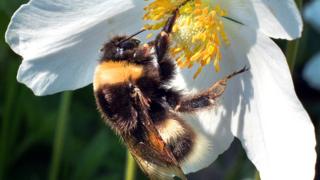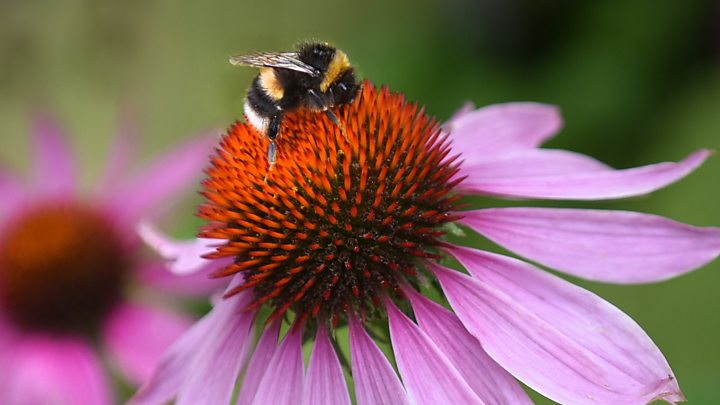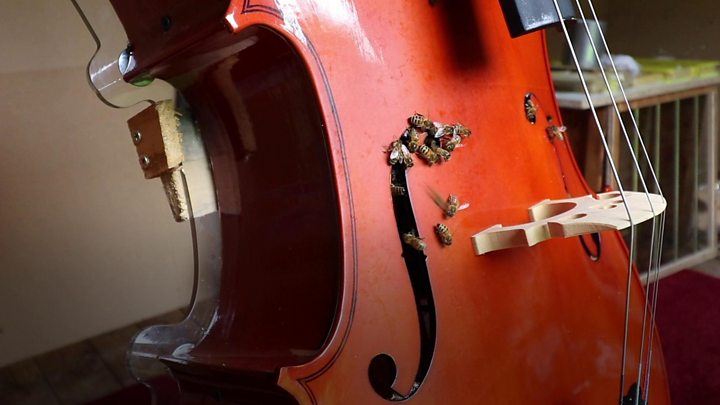Russia alarmed by large fall in bee populations
Large areas of central and southern Russia have seen a major decline in their bee populations in recent months.
The head of the Russian beekeepers’ union, Arnold Butov, said 20 regions had reported mass bee deaths.
The affected regions include Bryansk and Kursk, south of Moscow, and Saratov and Ulyanovsk on the Volga River.
Mr Butov, quoted by Russian media, said the crisis might mean 20% less honey being harvested. Some officials blamed poorly regulated pesticide use.
Yulia Melano, at the rural inspection service Rosselkhoznadzor, complained that her agency had lost most of its powers to control pesticide use since 2011.
Russia produces about 100,000 tonnes of honey annually. Mr Butov said the union’s members were collecting data on bee losses, so that by 1 August a detailed report could be submitted to the Russian government.
Sunflowers and buckwheat are just two of the staple crops pollinated by bees in Russia. Orchards also rely on bees for pollination.
There are fears that the bee deaths will push up not only honey prices, but also those of other popular foods. The crisis has spread as far as the Altai region in Siberia, more than 4,000km (2,485 miles) east of Moscow.
Read more on similar topics:
Declining bee populations have caused widespread alarm in Europe, with experts blaming the crisis on a combination of factors: climate change, pesticides – notably neonicotinoids – and varroa mites spreading in beehives.
In April 2018 the EU imposed an almost total ban on neonicotinoids because of the harm they do to bees and other pollinators. Beekeepers in France raised the alarm again in June this year, reporting many severely hit bee colonies.
Robert Aigoin, president of the family farmers’ union Modef, said “the first part of the season has been catastrophic”. He and other beekeepers blamed climate change, noting that late frosts had been followed by a severe heatwave in France.
It was a similar pattern in previous years for French producers: for example, in 2016 just 9,000 tonnes of honey was harvested, whereas about 20,000 tonnes is normal.
France is a major honey producer in the EU, along with Spain, Germany, Romania, Poland, Hungary and Greece.
About 250,000 tonnes of honey is produced in the EU annually. The bloc is the second-largest producer worldwide, while China produces the most – more than 500,000 tonnes.
In May the European Commission accepted a European Citizens’ Initiative (ECI) called “Save the bees!”, which urges tougher measures to boost biodiversity, through conservation initiatives, pesticide bans and restrictions on fertilisers. If the ECI organisers collect a million or more signatures within a year, the Commission has to consider legislating on the proposal.
The Commission is providing €120m (£108m) over the next three years in support for the EU beekeeping sector. That sum will also be matched by contributions from member states.
Source: Read Full Article





